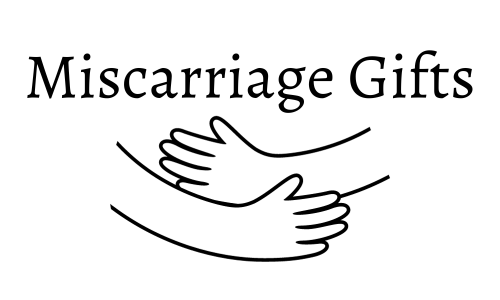Experiencing a miscarriage is a heart-wrenching journey, one that transcends the duration of the pregnancy. It's a loss that shatters dreams, hopes, and expectations, leaving behind a profound sense of grief and emptiness. Yet, societal perceptions often fail to grasp the depth of this pain, dismissing it based on the length of the pregnancy. However, the truth is that a miscarriage hurts, regardless of how long someone was pregnant.
1. **Duration Doesn't Define Grief**: The duration of a pregnancy does not determine the depth of the grief felt by those who experience a miscarriage. While some may assume that an early miscarriage is less devastating than one later in pregnancy, the reality is that the pain of loss is profound, regardless of when it occurs. For Sarah, who experienced a miscarriage at six weeks, the pain was just as intense as her friend Jessica's, who miscarried at sixteen weeks. Both mourned deeply for the babies they had hoped to welcome into their lives, regardless of the duration of their pregnancies.
2. **Loss of Dreams and Hopes**: Miscarriage is not just the loss of a pregnancy; it is the loss of all the dreams and hopes of motherhood or fatherhood associated with a wanted baby. Couples often spend weeks or months planning for the arrival of their little one, imagining a future filled with joy and love. When a miscarriage occurs, those dreams are shattered, leaving behind a profound sense of grief and emptiness. John and Emily had spent months planning for their baby's arrival, only to have their dreams shattered by a miscarriage at ten weeks. The loss wasn't just of the pregnancy but of the future they had envisioned for their family.
3. **No Timeline for Grief**: Grief is a deeply personal journey, and there is no set timeline for healing after a miscarriage. While some may find solace sooner rather than later, others may need more time to process their emotions and come to terms with their loss. After her miscarriage, Rachel found herself engulfed in a whirlwind of emotions. While some days were easier than others, there was no set timeline for her grief. It was a journey she had to navigate at her own pace, without the pressure to "move on" before she was ready.
4. **Struggles with Conception**: For many couples, the journey to parenthood is marked by years of struggles with infertility. Miscarriage, when it occurs, represents not just the loss of a pregnancy but a setback in a journey marked by resilience and determination. Mark and Lisa's journey to parenthood had been marked by years of infertility treatments and heartache. When they finally conceived through IVF, the miscarriage that followed was a devastating blow to their hopes and dreams.
5. **Fertility Treatments**: Similarly, for couples undergoing fertility treatments, each positive pregnancy test represents a triumph over adversity. When a miscarriage occurs, it isn't just the loss of a pregnancy but the loss of hope and progress in a journey marked by uncertainty and challenges. For Mike and Kelly, each round of fertility treatments brought renewed hope. When their pregnancy ended in miscarriage, it wasn't just the loss of a pregnancy but a setback in a journey marked by resilience and determination.
6. **The Power of Empathy**: One of the most important aspects of supporting someone who has experienced a miscarriage is empathy. It's crucial to acknowledge the depth of their pain and offer support without judgment or dismissal. When Emily's coworker brushed off her miscarriage with a casual remark about it being "just an early pregnancy," it only added to her pain. In contrast, her friend Sarah's simple gesture of listening and offering a hug provided the comfort she needed in her time of grief.
7. **Role of Medical Professionals**: The role of medical professionals in acknowledging and supporting individuals and couples who have experienced miscarriage cannot be overstated. Compassionate care, empathy, and access to resources for grief support can greatly aid in the healing process. Encouraging open communication and providing options for counseling or support groups can make a significant difference in helping individuals navigate their grief journey.
In conclusion, the pain of miscarriage runs deep, regardless of the duration of the pregnancy. It's a loss that extends beyond the physical realm, touching the very essence of parenthood and human connection. As a society, it's imperative that we recognize and honor the grief of those who have experienced miscarriage, offering support and understanding without judgment or dismissal. Let's choose empathy over indifference and kindness over ignorance, standing with those who grieve and acknowledging the depth of their loss.
